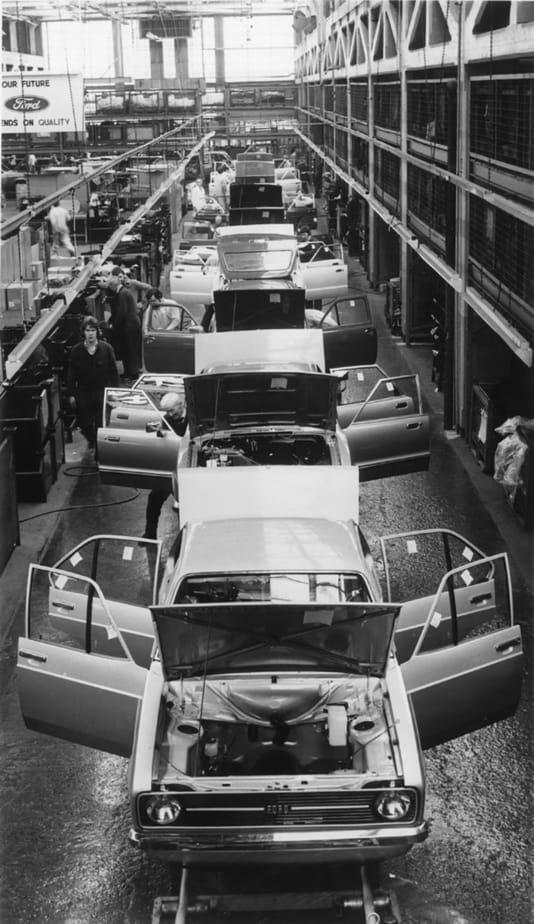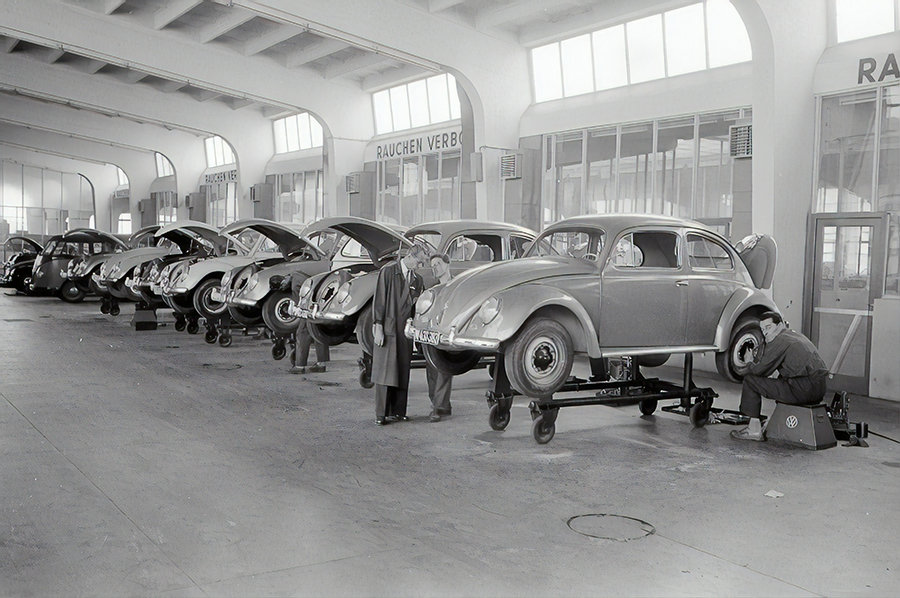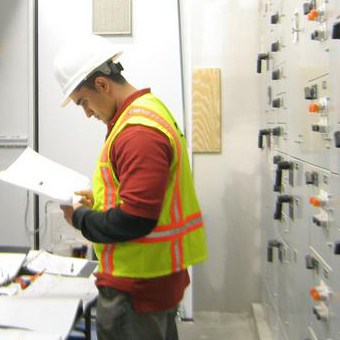Can engineers unionize? You bet! But it’s not as common as in other industries, and that’s partly because of the Pareto Principle.
This principle says that 80% of the results come from a mere 20% of the actions taken. In the working world, this means that a staggering 80% of a company’s output is produced by just 20% of its workforce.
To understand the 80/20 rule’s influence, let’s dive into the world of engineering unionization in the U.S.
How often do engineers rally for unions?
In my experience, the word union pops up in conversations at engineering firms when things like these happen:
- Massive layoffs
- Allegedly awful long-hour working conditions with no breaks
- Management turning a blind eye to engineers’ concerns
As tensions rise, you can’t help but overhear whispers of, “I told you so! We need to unionize!”
Like anyone else, engineers crave more rights and power—it’s a recipe for controlling your destiny and safeguarding your interests.
So, why aren’t unions more prevalent in engineering? After all, there were 1.6 million engineers employed in the U.S. in 2015 alone.
The truth is, unions aren’t a one-size-fits-all solution. When done right, they can bring immense benefits to both employees and employers. But when they’re mismanaged and serve only their own interests, they can be an absolute nightmare.
Existing unions in engineering
I know a few engineers who are in unions, and they’re loving it. They enjoy a stable income, excellent benefits, and job security.
However, many of my engineer friends are not so keen on unions. They find the rules that come with unions to be restrictive and, to be blunt, total nonsense!
For instance, a power engineer may need to inspect a piece of de-energized equipment from time to time. But if you’re in a union, you can’t just dive in and inspect it. Instead, you have to jump through a series of hoops.
This starts with submitting a work order request to inspect the equipment. Then, you need to explain why the inspection is necessary. And even when you finally get the green light, you have to repeat the process if you want to make any repairs.
Another concern is that unions can raise the value of unskilled or unmotivated workers, while not adequately rewarding outstanding employees. The latter group can’t show off their productivity and be compensated accordingly, all because a union dictates the scope of their job role.
Now, let’s tackle the question “can engineers unionize?” through the lens of the 80/20 rule.
The 80/20 rule in the engineering profession: A closer look
The 80/20 rule holds true in all aspects of life, engineering included.
A perfect example can be found in the NBA. You have LeBron James, a handful of other stars, and then a bunch of benchwarmers on a team.
Remove LeBron from the equation, and the team plummets. With LeBron, they’re championship contenders. The success of a 15-player NBA roster hinges on just one player, which is why LeBron can choose where he wants to play and receive the maximum salary offered.
Likewise, in engineering, some engineers, like 10x engineers, can crack insanely complex problems while others just can’t. This brings us to the debate over the commoditization of workers.
Life on the assembly line: How workers became commodities

Way back in 1913, good ol’ Henry Ford whipped up the first moving assembly line, and just like that, the mass production of automobiles took off. Building a car suddenly zoomed from taking 12 hours to just 1 hour and 33 minutes!
Imagine the car assembly line in action: each worker masters one specific task, a little something we call the division of labor.
So, let’s say Person ‘A’ is all about installing the motor, while Person ‘B’ handles the wheels. In this division of labor, Person ‘A’ doesn’t need to know a thing about wheel installation and vice versa.
By focusing on one task and one task only, these workers become superstars of efficiency. Their work output is optimized, production costs go down, and efficiency skyrockets.
Assembly line life: How workers get standardized
Each person on the assembly line has their role clearly defined. This standardization means their work can be accurately priced.
Swap Person ‘A’ with Person ‘B,’ and you’d still get the same output. Once you’ve learned your role, there’s no mystery. That means the only thing up for negotiation is human labor. So, what’s the bottom line?
Before someone even steps onto the assembly line, their value is set in stone. Their economic contribution to the task at hand is known before they even touch a tool.
That’s why a carmaker negotiates with labor unions rather than thousands of individuals. It’s also why they’ll always pay the same price for a wheel installer.
Flippin’ burgers, anyone? You don’t haggle over your pay – you take what you’re offered. Why? Because all burger flippers are busy doing the same dance of flipping patties.
Are engineers just another commodity in the workforce?

Some might be, especially if they’re lower-level engineers doing repetitive work.
If your boss can automate your job, you’re in danger of becoming a commodity. Then, your engineering work is no different from the folks on the assembly line, and you get paid a fixed fee.
But let’s be real: most engineers don’t do the same task on repeat. Instead, they analyze, process, research, and solve problems. Each project demands their full attention.
Take the Golden Gate Bridge, for example. Designing it was a whole different ballgame compared to a bridge over a calm river. In fact, many folks thought building the Golden Gate Bridge was a pipe dream. But I’ve talked about the engineering magic behind it.
The point is, you can’t just swap one chief engineer for another and expect the same outcome. Engineering work needs unique qualities that vary from person to person:
- Lightning-fast spatial reasoning
- Stellar memory capacity
- Top-notch pattern recognition
So, an engineer’s economic output isn’t set in stone. The more skilled an engineer, the better the end product.
You can’t put a fixed price on the lead engineers who’ll safely rocket us to Mars, especially since we’ve never done it before. It’s like a brilliantly talented artist with out-of-this-world creativity we’ve never seen before.
In a nutshell, creativity doesn’t come with a price tag. In the same way, you can’t slap an economic value on engineering because, at its core, engineering is a wildly creative profession.
That’s why great engineers can name their price in the open market, and it’s a big reason why many engineers don’t want to unionize.
Engineers leveraging the open market with specialized skills
Most engineers have a unique skill set, which they can quickly find a new job when needed. Most professions don’t have this luxury, which is why unions step in as a safety net for workers.
However, I’ve realized that unionizing often commoditizes a profession. Many professionals I’ve spoken to describe how their employers treat them like factory workers, with doctors in the healthcare industry being a prime example.
Stay curious, keep learning
Now, don’t get me wrong – everyone’s skills are essential, and every contribution makes a difference. But let’s be real, some skills are more in demand than others.
In today’s fast-paced world, a sought-after skill today might be obsolete tomorrow. So, constantly challenging yourself to learn is crucial. Not only do you grow personally, but you also contribute to humanity’s progress.
Typically, the best learners find themselves in environments where learning is a must. And, no offense, but most unions don’t exactly foster a never-ending learning atmosphere.
To earn more, Elon Musk put it simply:
“You get paid in direct proportion to the difficulty of problems you solve.”
Properly operating labor union models

On the flip side, properly run unions can be effective for certain industries, like electricians. Many electricians I’ve spoken to love their union because their work is straightforward – maintaining quality and safety while following a fixed design.
But when it comes to creating the tech of tomorrow, a predefined path just won’t cut it. Unions can sometimes hinder progress, as they can’t manage work as efficiently as employers.
Engineering unions: A German success story
You know what’s awesome? The way engineering unions work in Germany. Seriously, it’s quite a success story. Unlike other places, these unions are actually part of the company. Take BMW and Audi, for example – they’ve got union reps sitting right there on their administrative boards.
So, picture this: BMW wants to set up shop in a new country. Before they can do that, they need a thumbs-up from both their shareholders and the union. It’s a real team effort.
What’s cool about this is that the trade union’s in the loop about the company’s financial situation. If the company’s struggling, the union can step in and help by making compromises, like cutting worker pay in tough times.
Remember the 2008 Great Recession? German engineering companies barely flinched, all thanks to this setup. Plus, these unions are all about playing the long game – they’re into investing in R&D instead of just cashing out shares.
It’s no shocker that the union’s success is tied to the company’s success. They’re like two peas in a pod. In America, though, trade unions are their own separate thing, and that can lead to some power struggles.

Important Note: German culture plays a big part in the success of their unions. Over there, if you’re slacking off at work, someone’s gonna call you out. No free rides or half-assing allowed!
Now, let’s talk about the American way. It’s all about being nice and not hurting feelings, right? So when things go downhill, people don’t always speak up – they don’t want to come off as aggressive or rude.
LeBron James, the NBA, and the CBA

Going back to my LeBron James example and the NBA’s CBA, we know that LeBron’s contributions go way beyond the basketball court. He brings leadership, camaraderie, a boost in marketing dollars, increased TV viewership, and so much more. Just like in engineering, it’s hard to pinpoint the exact value of an individual NBA player. That’s where the CBA comes in, focusing on both individual players and the collective good.
You see, there’s strength in numbers. When you’re negotiating with your employer one-on-one, it’s easy to lose leverage. Imagine an average NBA player asking his team owner for a raise, thinking his salary doesn’t match his value. The owner could respond by saying there are 50 other players ready to take his spot. Ouch, reality check!
But when you’re part of a union, you’ve got the power of collective bargaining. If players go on strike, team owners will lose not only the average players but also their irreplaceable superstars. In the NBA, where injuries are common and careers can be cut short in an instant, this strategy makes sense. Players want minimum salaries and guaranteed contracts to protect themselves from a sudden career-ending injury, like a torn ACL.
So, whether you’re dribbling a basketball or tackling an engineering project, the 80/20 rule is something we can all relate to. It’s a reminder that a small group of individuals can have a huge impact on our lives and that unity and collective bargaining can level the playing field for everyone.
“Can engineers unionize?” wrap up
Sure they can, but not all engineers are keen on it. Culture plays a huge role in how effective unions can be, and in the U.S., it’s all about individuality – not exactly a perfect fit for the union model.
At the end of the day, you can’t slap a fixed price tag on the work of most engineers. It’s all about creativity, and that’s pretty darn hard to quantify.
So, what do you think? Can engineers unionize in a way that benefits everyone? Is unionization a good deal for both workers and employers?

Author Bio: Koosha started Engineer Calcs in 2019 to help people better understand the engineering and construction industry, and to discuss various science and engineering-related topics to make people think. He has been working in the engineering and tech industry in California for well over 15 years now and is a licensed professional electrical engineer, and also has various entrepreneurial pursuits.
Koosha has an extensive background in the design and specification of electrical systems with areas of expertise including power generation, transmission, distribution, instrumentation and controls, and water distribution and pumping as well as alternative energy (wind, solar, geothermal, and storage).
Koosha is most interested in engineering innovations, the cosmos, sports, fitness, and our history and future.
